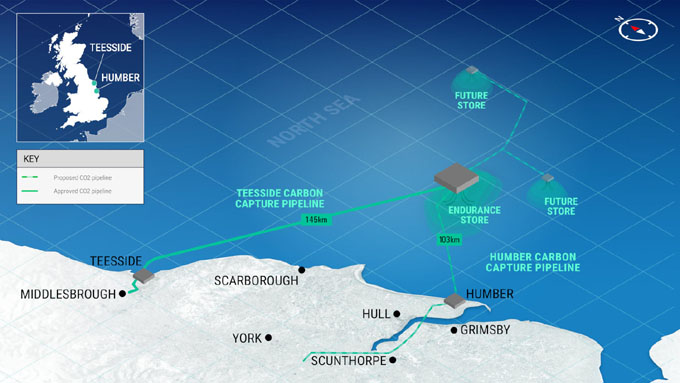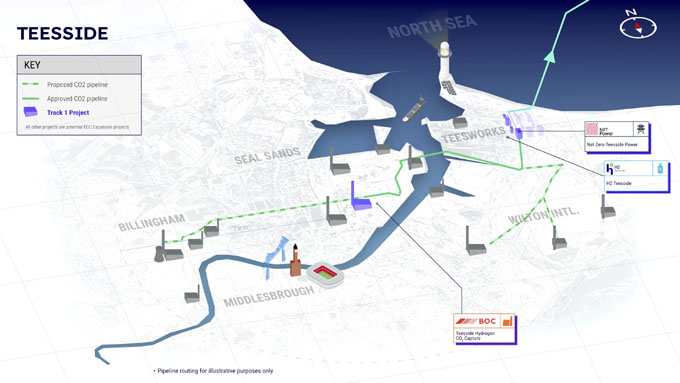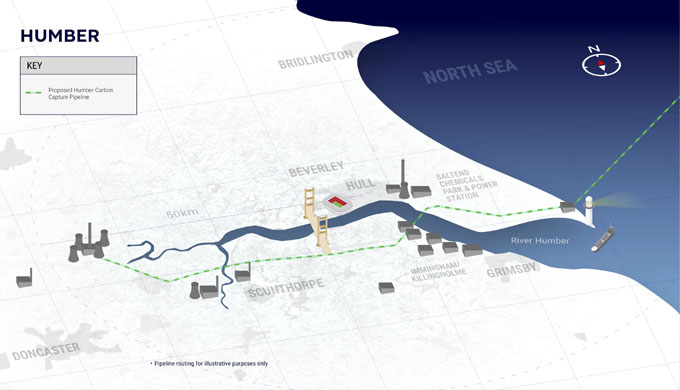
The Northern Endurance Partnership (NEP) is developing onshore and offshore infrastructure needed to transport CO2 from carbon capture projects across Teesside and the Humber – collectively known as the East Coast Cluster - to secure storage under the North Sea.
The infrastructure is crucial to achieving net zero in the UK’s most carbon intensive industrial regions.
NEP, via the Endurance saline aquifer and adjacent stores, has access to up to 1 billion tonnes of CO₂ storage capacity.
NEP is in an incorporated joint venture established solely to develop and operate CO₂ transportation and storage infrastructure on behalf of the NEP Shareholders – bp, Equinor and TotalEnergies.

Teesside
NEP is developing the Teesside Carbon Capture Pipeline, the infrastructure to transport CO₂ from industrial carbon capture projects across Teesside to a compression facility and out to the Endurance carbon store via an offshore pipeline.

Humber
NEP is also progressing development work for the Humber Carbon Capture Pipeline - the proposed infrastructure that would transport CO2 from carbon capture projects in the Humber region to secure offshore storage under the North Sea. The infrastructure would enable a connection to carbon capture projects in the Humber selected by DESNZ through the East Coast Cluster expansion process.

Northern Endurance Partnership enabling the East Coast Cluster
The Northern Endurance Partnership enables the East Coast Cluster, one of the first two carbon capture, usage, and storage (CCUS) clusters to be taken forward by the UK Government.
Covering the industrial powerhouse regions of Teesside, and the Humber, the East Coast Cluster includes a diverse mix of carbon capture projects, including industrial carbon capture, low-carbon hydrogen production, negative emissions power, and power with carbon capture.
 KEYFACT Energy
KEYFACT Energy



